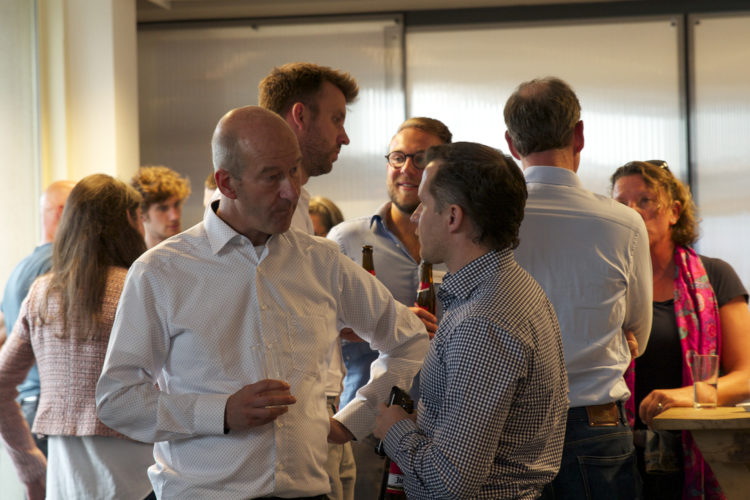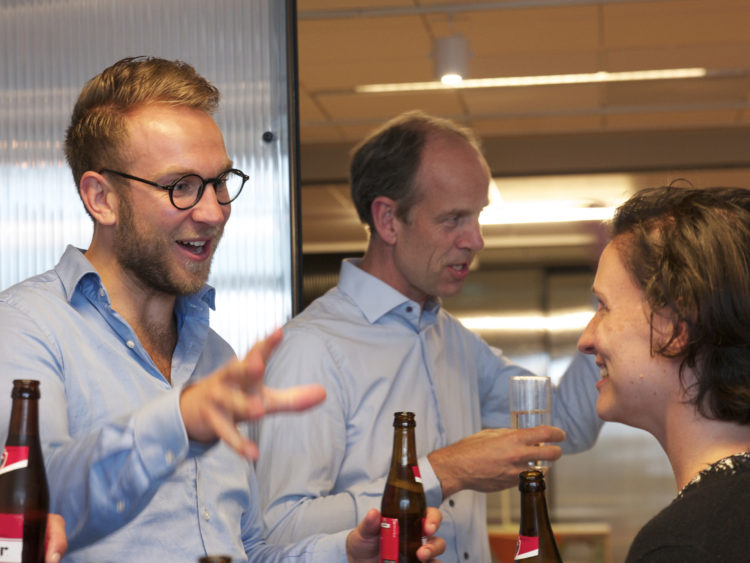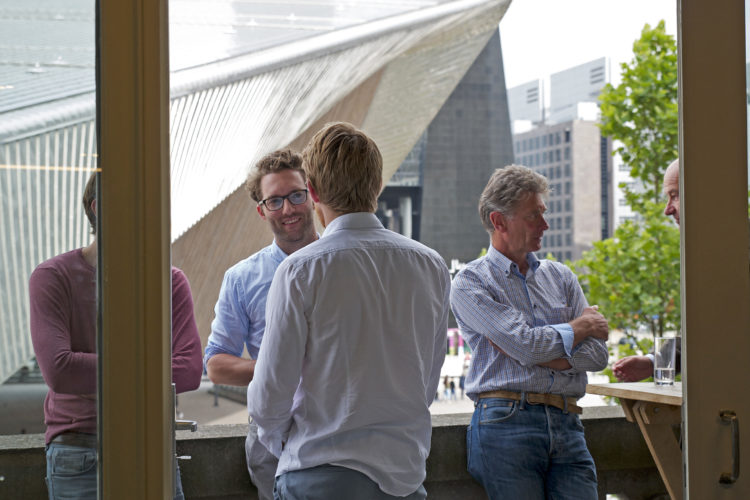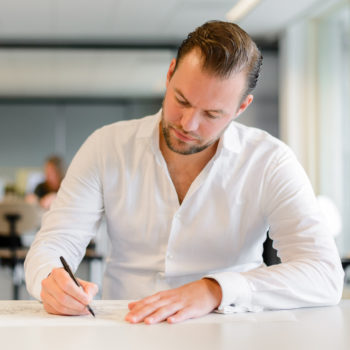The Story of the Inclusive City
29 Jun 2017 16:00 - 19:00
Rotterdam, Netherlands
How can we stimulate and facilitate happiness in cities? How can we increase the feeling of wellbeing for the inhabitants of cities? Or, put differently: how can we build happier cities together with citizens, governments and businesses?
To answer this question, students from Delft Technical University, Erasmus University Rotterdam and the University of Leiden joined the ‘Inclusive City Hub’ part of the Centre for Sustainability. Within this hub, present day urban issues – such as living, care, mobility, waste and circularity and sustainable energy – form the main focus. The Hub wants to contribute to the joined roadmap of the Metropole Area The Hague 2050.
The guiding theory for the student projects is the ‘Design for Happiness’ model made by Pieter Desmet, professor Design for Experience at the Faculty of Industrial Design at the TU Delft. The ingredients of wellbeing in this model are: the feeling of being a decent and virtuous human being, the feeling of mattering, fun and satisfaction and the feeling of belonging to something or someone. The students have used these ingredients as a starting point for their research.
However, to design for happiness (and we do not mean the ecstatic feeling of happiness, but a more general feeling of contentment) it is also necessary to learn what drives and motivates people. What is the intrinsic motivation of the inhabitants of the city? Lucas Meijs, professor Volunteering, Civil Society and Businesses at the Rotterdam School of Management of the Erasmus University Rotterdam, says that it is crucial for people to do what they themselves deem fun, important and meaningful in an organized fashion, so that they do not lose their autonomy. The students participating in the hub went out into the city to talk about this with the citizens and learn from their experiences.

The graduation presentations
Stella Groenewoud, MSc Urbanism at the TU Delft, is working on a research titled ‘From stuff to cities, in which she looks at the natural organization of things (i.e. personal objects) and into the way cities can use this organization when designing spaces. According to Stella, if cities use the right composition of things, they can create spaces where people feel free to reside and use the space for activities.
Emmy van Gennip, MSc in Economics and Engineering, presented her graduation research titled “Power to empowerment”: a master thesis about local energy initiatives. Her central objective was to find out how local policies can stimulate energy initiatives that contribute to the energy transition of Rotterdam. The most important conclusion was that this can especially be reinforced by giving support to bottom-up initiatives, for example in the shape of financial aid, coaching or temporary energy contracts.
Kathrin Wendt, MSc Global Business and Sustainability, was wondering why millennials do not recycle that much, even though they are often very aware of climate change and environmental problems. According to her research, having the right intention is only one of four factors that influence the recycle behavior of the millennials. Other factors are: facilitations, habits from the past and the fulfillment of recycling (also called the ‘feel good motive’).


